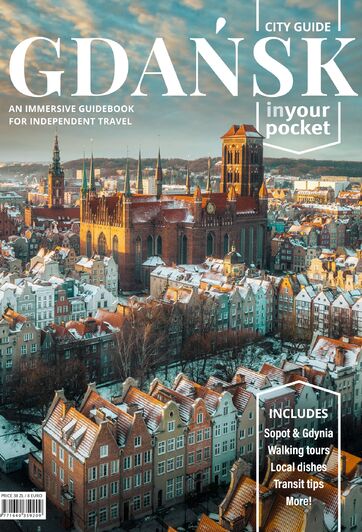His belief in the need for a strong Kashubian identity seems to have been influenced by a teacher, the priest Teofil Bączkowski, who helped develop the young Abraham’s national consciousness in the late 19th century when Kashubia was part of the Prussian partition of Poland.
In 1891 Abraham became one of the founding members of the People’s Society ‘Unity’ (Towarzystwo Ludowe „Jedność”) in Gdansk Oliwa as well as similar societies in Puck, Kielno, Wejherowo, Reda, Chylonia and Gdynia.
From 1911-1913 he led the People’s Society in Reda which was one of the most active societies in the Pomerania region. Extremely active, Abraham would organise rallies, often outside of church following mass, where he attacked the Prussian rulers and encouraged the local people to read Gazeta Gdanska where he wrote a regular column which often criticized the local Kashubian population for their passive attitude in regards to stating their identity and their lack of national awareness. He was well-known for his phrase ‘The alphabet, the book, the newspaper are a virtue of the Polish home’ (“elementarz, książka, gazeta to polskiego domu zaleta”) and was a proponent of literature dedicated to regional themes.
Abraham had married Matylda Paszke from Orle in 1890 and they had 2 sons and 3 daughters. Abraham suffered the tragedy of seeing one of his daughters die in an accident as a child and further tragedy awaited when Abraham, his two sons and his son-in-law were conscripted into the German army in 1915. All three younger men were to die on the front while Abraham himself was seriously wounded.
Following the war, Abraham became a member of the Committee of the General People’s Council in Royal Prussia, Warmia and Mazuria and travelled to Paris illegally to support the Polish delegation of Roman Dmowski at the Paris Peace Conference of 1919 where the map of Europe was re-drawn following the German defeat in WWI. This visible support by the Kashubian representatives for the Polish delegation and their demands to be incorporated into the new Polish state were important in large parts of Kashubia becoming Polish territory while Danzig/Gdansk became an independent free state.
He returned to Poland from France with General Haller’s Blue Army, presenting Haller with a traditional Kashubian snuff pouch at the ‘Marriage to the Sea’ ceremony in February 1920 when Poland regained access to the Baltic. Abraham moved into the house at ul. Starowiejska later that year and was awarded the Order of Polonia Restituta by President Stanisław Wojciechowski in 1922. Wojciechowski described Abraham as ‘a prince of the Kashubian people, whose enduring belief in his faith and language is the reason that the Polish flag now flies over the Baltic Sea.’
Abraham was to become seriously ill with cancer just a few weeks later and although money was provided for his treatment by the president of Poland, the ‘King of the Kashubians’ died on June 23, 1923 at his home in Gdynia. His funeral was attended by thousands of people and the whistles of locomotives and horns of ships were blown as the cortège passed through Gdynia. Abraham was buried at the cemetery in Oksywie at his request and on his grave you can find the inscription “Here is buried Antoni Abraham - zealous defender of faith and Polishness in Kashubia”. A statue was raised in his honour in the centre of Gdynia in 2001.




Comments